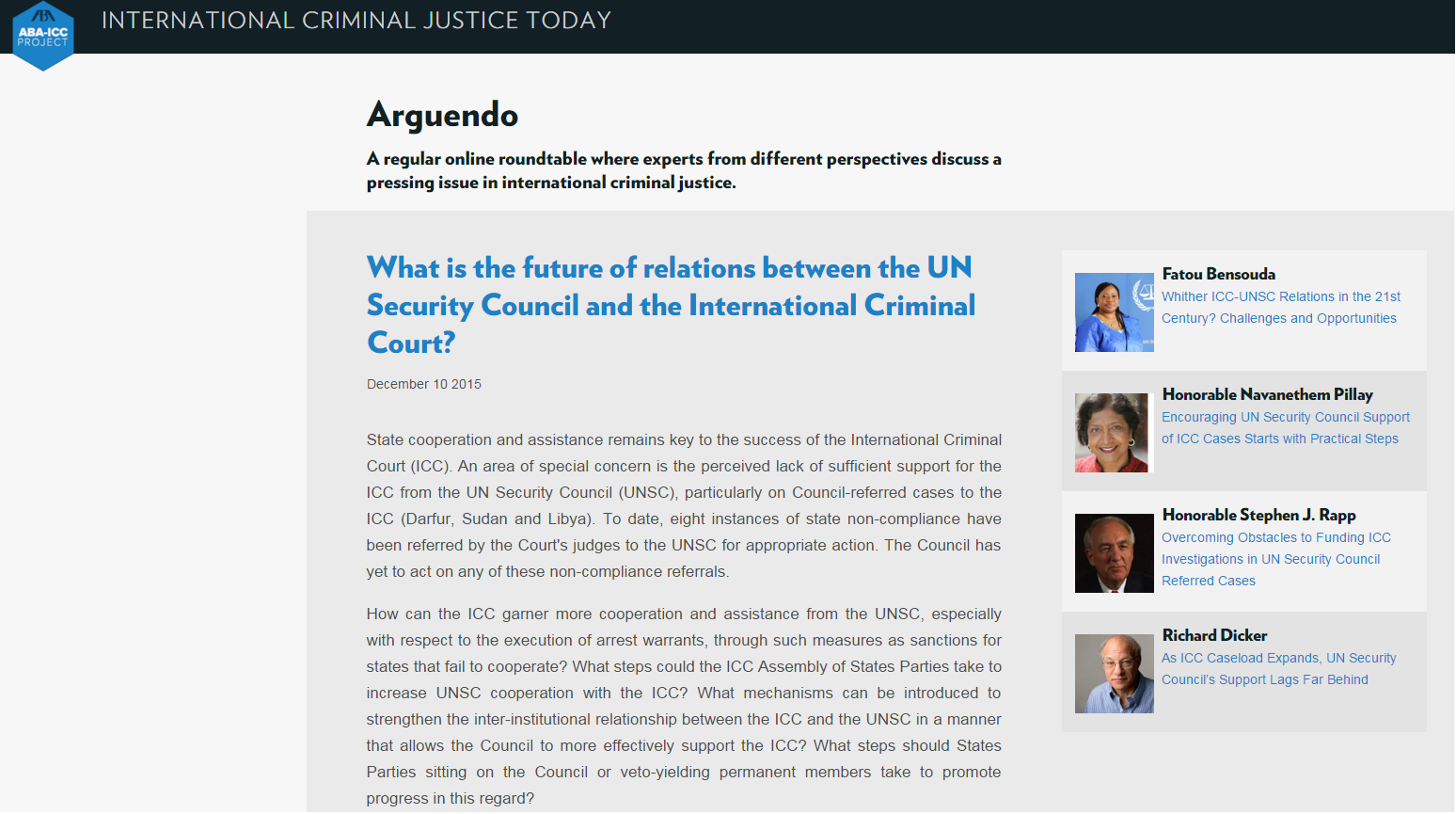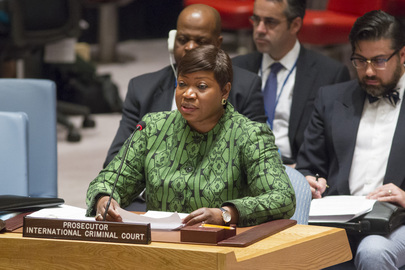Several distinguished experts put forth thought-provoking as well as pragmatic ideas for advancing UNSC-ICC relations.
Washington D.C., Dec. 10, 2015 - On the occasion of Human Rights Day, the American Bar Association’s International Criminal Court (ICC) Project and Stanford Law School Program in International and Comparative Law are pleased to announce the release of the latest online expert roundtable, Arguendo, this time on the future of relations between the UN Security Council (UNSC) and ICC.

To discuss this critical relationship in international criminal justice, a highly distinguished panel was assembled: Fatou Bensouda, Prosecutor of the ICC; Honorable Navanethem Pillay, former UN High Commissioner for Human Rights; Honorable Stephen J. Rapp, former US Ambassador at-Large, US State Department’s Office of Global Criminal Justice; and Richard Dicker, Director of Human Rights Watch’s International Justice Program.
In answering the question, “What is the future of relations between the UN Security Council and the International Criminal Court?”, each Arguendo contributor put forth thought-provoking as well as pragmatic ideas for advancing UNSC-ICC relations. In her article, Madame Prosecutor highlights several areas where greater cooperation is critical, most notably UNSC follow-up on arrest warrants and non-compliance notifications from ICC judges. High Commissioner Pillay argued for practical steps that states could organize and facilitate both at the UN and the ICC’s Assembly of States Parties that would promote better communication and coordination between the Council and Court. Ambassador Rapp discusses how changes to US law and policy could result in greater UNSC support of situations it has referred to the ICC, namely Darfur, Sudan and Libya. Mr. Dicker draws attention to UNSC’s continued failings to support the ICC, but says certain state-organized initiatives to increase UNSC support are reasons to be optimistic.
We encourage you to visit this latest Arguendo, and please comment with your ideas and responses.
The American Bar Association’s (ABA) International Criminal Court (ICC) Project is an independent initiative of the ABA Center for Human Rights that advances international criminal justice and US-ICC relations through advocacy, education and practical legal assistance. More information about the ABA’s ICC Project can be found at its website.

